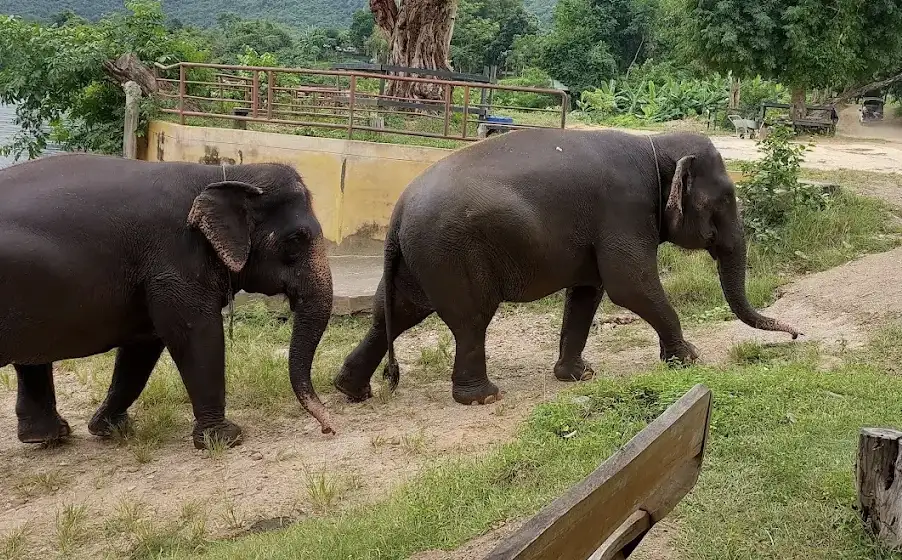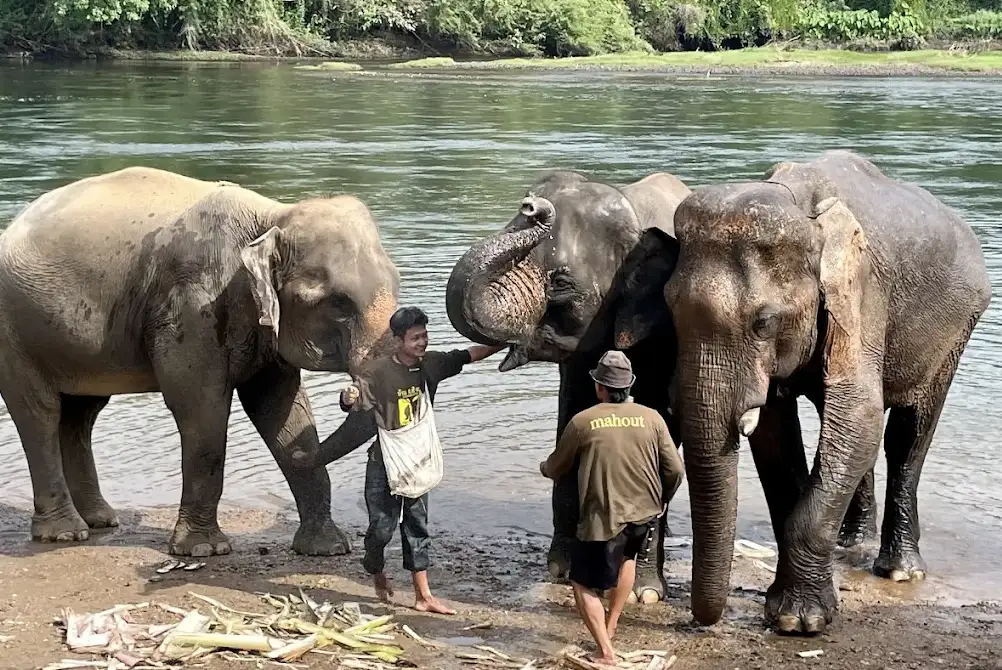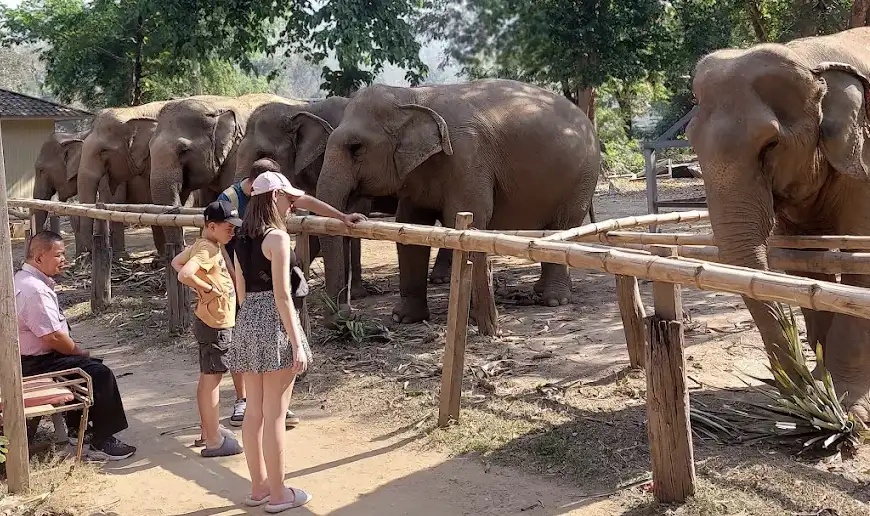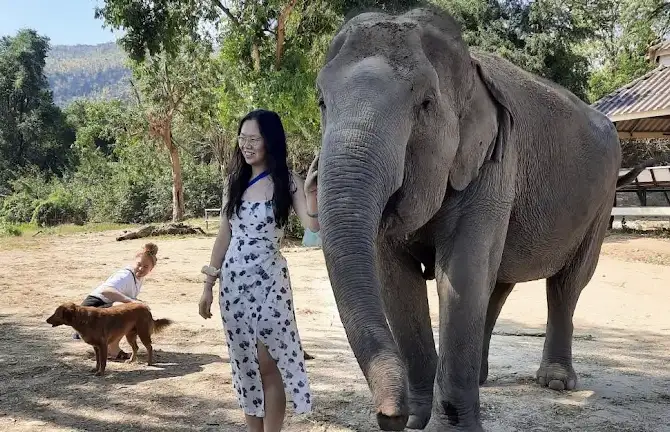Visiting an elephant sanctuary near Bangkok is a dream for many travelers seeking an ethical and meaningful connection with Thailand’s iconic gentle giants. With growing awareness about animal welfare, tourists are increasingly choosing sanctuaries that prioritize elephant well-being over entertainment. This Bangkok Elephant Sanctuary review explores the top ethical sanctuaries near the city, what to expect during a visit, and why these experiences are both unforgettable and responsible. Whether you’re planning a day trip or an overnight stay, this guide will help you make an informed choice for a sustainable elephant encounter.
Why Choose an Ethical Elephant Sanctuary Near Bangkok?
Elephants hold a special place in Thai culture, symbolizing strength, wisdom, and heritage. However, for centuries, many elephants in Thailand were exploited in logging, tourism, and entertainment industries. Ethical sanctuaries have emerged to rescue and rehabilitate these majestic creatures, offering them a life free from chains, rides, or forced performances. Choosing a reputable sanctuary ensures your visit supports conservation efforts and prioritizes elephant welfare.

Unlike exploitative camps that promote riding or tricks, ethical sanctuaries near Bangkok focus on observation, education, and minimal human interaction. These sanctuaries provide natural habitats where elephants can roam, bathe, and socialize freely. By visiting such places, you contribute to their care and help raise awareness about ethical tourism.
Top Ethical Elephant Sanctuaries Near Bangkok
Several sanctuaries within a few hours of Bangkok offer authentic, cruelty-free experiences. Below are reviews of some of the most reputable ones based on visitor feedback, ethical practices, and conservation efforts.
ElephantsWorld Kanchanaburi
Location: Kanchanaburi, approximately 2.5–3 hours from Bangkok
Overview: Founded in 2008, ElephantsWorld is a sanctuary dedicated to sick, old, disabled, and rescued elephants. It emphasizes ethical care, allowing elephants to live in a natural environment without performing for tourists.

Visitor Experience: A full-day visit (around 2,500 THB for adults) includes feeding elephants, preparing their food (like sticky rice balls), and observing them bathe in the river. Visitors can also participate in planting food crops for the elephants, such as banana trees or sugarcane. The sanctuary offers half-day and overnight programs, including traditional Thai cottages for a rustic stay.
Ethical Practices: ElephantsWorld prohibits riding, chaining, or any unnatural behavior. Each elephant has a mahout (caretaker) to ensure their safety, but the animals roam freely in open spaces. The sanctuary’s mission is to work for the elephants, not the other way around.
Review: Visitors praise the knowledgeable staff, who share stories about each elephant’s history and personality. The experience feels authentic, with no pressure to touch or interact beyond feeding and observation. The Thai buffet lunch is a highlight, served with scenic river views. However, some note the long drive from Bangkok, though it’s deemed worth it for the ethical experience.
Elephant Haven Thailand (Sai Yoke Elephant Camp)
Location: Kanchanaburi, about 3 hours from Bangkok
Overview: Elephant Haven, also known as Sai Yoke Elephant Camp, is a peaceful sanctuary set in a lush, forested area. It focuses on providing a safe haven for elephants retired from logging and tourism.

Visitor Experience: Day visits, overnight stays, and week-long volunteering opportunities are available. Activities include walking with elephants through the jungle, preparing their food, and observing them in their natural habitat. The sanctuary also houses other rescued animals like dogs, cats, and buffaloes, adding to the holistic experience.
Ethical Practices: No riding, hooking, or performances are allowed. The sanctuary promotes a “saddle-off” model, ensuring elephants live as naturally as possible. Visitors are encouraged to observe rather than interact directly, respecting the elephants’ autonomy.
Review: Travelers appreciate the serene environment and the chance to see elephants foraging freely. The small group sizes enhance the intimate feel, and the guides are passionate about conservation. Some visitors mention the basic facilities, but the focus on animal welfare outweighs minor inconveniences.
Pattaya Elephant Jungle Sanctuary
Location: Pattaya, about 2 hours from Bangkok
Overview: Part of the Elephant Jungle Sanctuary network, this relatively new sanctuary in Pattaya is a great option for those not traveling to Chiang Mai or Phuket. It was founded as a joint initiative between locals and the Karen hill-tribe to rescue elephants from cruel practices.
Visitor Experience: A half-day visit (around 2,500 THB) includes feeding elephants, walking with them, and observing mud baths. The sanctuary provides free professional photos, a unique perk that eliminates the need to bring your phone into muddy areas. Full-day tours and transfers from Bangkok are also available.
Ethical Practices: No riding, hooking, or circus tricks are permitted. The elephants are retired from performances or rescued from abusive owners, and the sanctuary prioritizes their health and happiness. The open spaces allow elephants to roam freely, accompanied by mahouts.
Review: Visitors rave about the friendly staff and well-cared-for elephants. The experience is described as interactive yet respectful, with ample time to learn about elephant conservation. However, a few travelers caution about researching transport options, as taxi drivers at Pattaya bus stations can be pushy.
What to Expect During Your Visit
A typical day at an ethical elephant sanctuary near Bangkok involves educational and hands-off activities designed to respect the elephants’ natural behaviors. Here’s a breakdown of what you can expect:
- Pickup and Travel: Most sanctuaries offer hotel pickups from Bangkok, with drives ranging from 2–3 hours. The journey often includes a rest stop, and drivers are punctual and courteous.
- Orientation: Upon arrival, guides provide an introduction to the sanctuary’s mission and the elephants’ backgrounds. You’ll learn about their rescue stories, ages, and personalities, fostering a deeper connection.
- Feeding: Visitors prepare and feed elephants fruits, vegetables, or sticky rice balls. This is done under supervision to ensure safety and proper portions, as overfeeding can harm elephants.
- Observation: You’ll observe elephants foraging, socializing, or bathing in rivers or mud pits. Ethical sanctuaries discourage touching or bathing with elephants, as these activities can stress them.
- Educational Activities: Some sanctuaries involve visitors in planting food crops or learning about mahout traditions. These activities highlight the importance of sustainable care.
- Meals and Amenities: A delicious Thai lunch, often vegetarian, is included. Facilities are basic but clean, with changing areas for muddy activities. Some sanctuaries offer overnight stays in simple cottages.
- Return Journey: After a fulfilling day, you’ll be driven back to Bangkok, arriving in the evening.
Tips for Choosing an Ethical Sanctuary
With many facilities claiming to be “ethical,” it’s crucial to do your research. Here are tips to ensure your visit aligns with responsible tourism:
Check for No-Ride Policies: Ethical sanctuaries prohibit riding, as it harms elephants’ spines and joints. Avoid places offering rides or performances.
Look for Minimal Interaction: Truly ethical sanctuaries limit human-elephant contact to feeding or observation. Bathing or touching can be stressful for elephants, even if marketed as “ethical.”
Research Accreditation: Organizations like World Animal Protection provide lists of vetted sanctuaries. Check reviews on platforms like TripAdvisor for transparency.
Avoid Greenwashing: Some camps use “sanctuary” in their name but still exploit elephants. Dig deeper into their practices, such as whether they breed elephants for tourism or use bullhooks.
Support Conservation: Choose sanctuaries that reinvest profits into elephant care, community support, or rewilding efforts.
Why Ethical Elephant Sanctuaries Matter
The rise of ethical sanctuaries reflects a global shift toward responsible tourism. In Thailand, where over 5,000 domesticated elephants live in captivity, sanctuaries provide a lifeline for those rescued from abuse. However, challenges remain, such as limited wild space for reintroduction and the economic dependence on tourism.
By visiting ethical sanctuaries, you help fund food, medical care, and habitats for these elephants. You also support mahouts and local communities, who often rely on sanctuary jobs for income. Most importantly, your visit raises awareness about the need to end exploitative practices like riding or circus shows.
Practical Information for Visitors
Cost: Day trips range from 2,500–3,500 THB per adult, with discounts for children. Overnight stays and volunteering programs cost more.
What to Bring: Wear comfortable, outdoor clothing and sandals. Bring sunscreen, a hat, a change of clothes, and a reusable water bottle. Avoid bringing phones into muddy areas; many sanctuaries provide free photos.
Best Time to Visit: The dry season (November–February) offers pleasant weather, but sanctuaries operate year-round. Rainy season visits may involve indoor activities like preparing food.
Booking: Reserve in advance, especially during peak seasons, to secure spots. Most sanctuaries offer online booking or partner with tour operators.
Final Thoughts: A Life-Changing Experience
Visiting an ethical elephant sanctuary near Bangkok is more than a tourist activity—it’s a chance to connect with nature, learn about conservation, and support a worthy cause. Sanctuaries like ElephantsWorld, Elephant Haven, and Pattaya Elephant Jungle Sanctuary offer unforgettable experiences that respect the dignity of these incredible animals. By choosing wisely, you ensure your visit leaves a positive impact on Thailand’s elephants and their caretakers.
Plan your trip today and witness the joy of elephants living freely, knowing your visit contributes to their happiness and survival. Have you visited an elephant sanctuary near Bangkok? Share your experience in the comments below!

